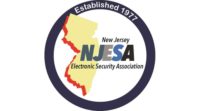The answer to these questions is, unequivocally, no.
As a national association, ESA will not exclude any aspect of security. Fire is as important to us today as it was 60 years ago when we added the word “Fire” to our name. Changing our name from NBFAA in August 2009 did not lessen our role in terms of fire alarm issues. In fact, we see our role growing, because fire alarm system installations and monitoring are a significant business for our membership.
In that light, we remain steadfastly committed to our four-pronged approach to ensuring that quality and professionalism are paramount in fire product installation and monitoring. Our four “prongs,” or areas of focus, are:
• Training,
• Standards,
• Legislation, and
• Industry trends/affairs.
ESA has been training heavily on fire since the 1980s through our National Training School. Thousands of technicians have been effectively trained and certified through our Fire Alarm Installation Methods and Advanced Fire Alarm Technician training courses and certification. Our ultimate desire is to ensure that the students we train are sufficiently qualified to have people’s lives and property rest safely in their hands.To that end, we will continue to author and deliver updated and advanced fire systems-related training.
While training is critical, it is not enough. Training only works if standards at the local, state and federal levels are adequate and effective — thus our involvement in the monitoring, influencing and creation of fire-related standards. Our federal role includes working closely with NFPA. At the state level, we recognize the need to standardize codes across state lines, and we are working towards that goal, to simplify operations for our members and ensure better quality systems. By unifying what we do across state lines, we’re learning from solutions that have worked in one state and applying those solutions to others. With so many demands on time and resources, we’re using this approach to steer clear of re-inventing the proverbial wheel from state to state.
With our collective ability to define — and through proper training — meet higher standards, we are able to work with regulators to ensure that the right legislation is in place and enforced. Our federal lobbyist has an open line of communication with state and house representatives and is constantly pushing our mantra: “Detection + suppression = life safety.” This is one of many legislative initiatives related to enhanced fire/life safety that our Government Relations team and lobbyist tirelessly champion.
In addition to legislation, standards and training, ESA members engage in trends affecting public safety when it comes to protection from fire. The Voice over Internet Protocol concern, or VoIP, is an issue that our Industry Affairs Committee has been addressing for several years. We have lobbied for legislation at the federal level and provided informational materials to state associations to inform their legislators of the critical nature of the VoIP issue as it affects intrusion systems and fire systems.
Ensuring a working signal that customers are properly informed about the potential problems with VoIP, and advocating for mandatory eight-hour battery backup, are all vital concerns in the fire arena and the intrusion arena. Through ESA’s coordinated effort, this communication has been shared with elected officials at the state and federal levels, and with our members so they can directly inform their customers.
We will continue to focus our efforts on actions like these in the years ahead as we expand ESA’s reach into new fire technologies, better training, improved standards and important legislative initiatives. As we continue this push, legislators, regulators, security companies and customers can come to us for the answers. When they do, we’ll be here, and we’ll know what works and what doesn’t work. Fire is serious business, it’s our business, and we’re putting the expertise of the Electronic Security Association behind it.



